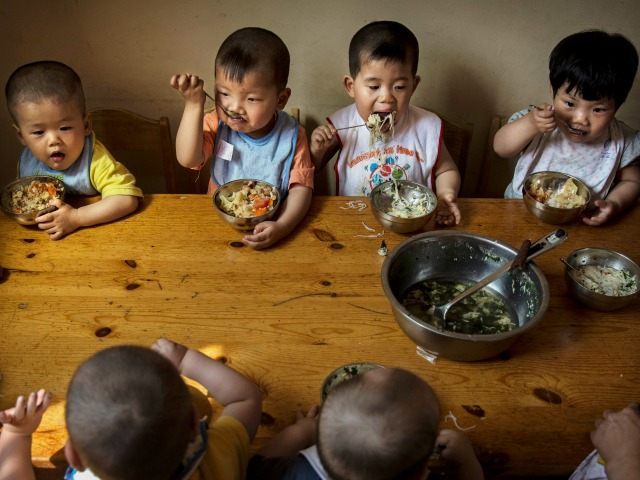Parents will leave behind millions of children in their home villages to find work in larger cities, leaving the kids vulnerable to sexual abuse. The Chinese government reformed its residence system to provide migrants with better living standards in the cities.
Any citizens “who have lived in cities outside their hometowns for more than six months, with legal and stable employment or accommodation, will now be allowed to apply for residence permits.” The State Council hopes the new rules will “promote the healthy development of new urbanisation” and “promote social fairness and justice.”
The World Bank predicts 70% of the Chinese population will live in cities by 2030.
Unfortunately, the workers “will lack privileges in terms of high school and higher education and low-cost housing.” The new rules state the children can only receive “nine years of compulsory education. Students must travel back to their home villages in order to take the national college entrance exam.
In 2013, the BBC reported about the “left-behind” children in China. Police arrested a 62-year-old man in Ruichang, Jiangxi, “for sexually abusing seven girls.” From the BBC:
The man was working as a school teacher in a remote mountainous region and between September 2012 and May 2013, he molested seven pupils aged eight or nine in a room at the back of the class, saying that he was just checking homework.
The girls were left with sexually transmitted diseases. Their parents were all migrant workers, Chinese media reports say.
The man has admitted the crimes and police are still investigating the case. It emerged just days after another primary school teacher was arrested in Shanxi Province, in central China, on suspicion of molesting several pupils.
Analysts monitoring such cases of abuse say these reports are probably just the tip of an iceberg.
“Behind every reported sex abuse case, there might be six hidden cases unreported,” commented Chinese criminologist Wang Dawei.
He also said the children might not know they are being abused.
In August, The Telegraph circulated a story about four children left behind by their parents. Zhou, 14, left behind a note for his parents that said, “Thanks for your kindness. I know you mean well for us, but we should go now.” He drank pesticide before handing it to his siblings, aged five, eight and nine. A trash collector discovered five boys in 2012 after a cold night. The boys huddled in a large bin around a fire, but it killed them with carbon monoxide.
The China Foundation for Poverty Alleviation plans to provide at least 100 women to become “substitute mothers” for these children. Only one woman will care for 300 to 500 children, though.
“It is a model to solve the problem of left-behind children,” explained Liu Wenkui, secretary-general of the foundation. “The program aims to solve the lack of guardians. If parents are forced to leave home to earn a living and unable to take their children with them, we are looking for a transitional way to solve the problem.”
Each village will receive a “children’s home.” The mothers will be between 19 and 55 with no criminal records.
“We want to hire full-time ‘mothers’ to guarantee they won’t be distracted by other work,” he said. “We want local candidates because they understand local languages and cultures.”
Police discovered two murdered schoolgirls in their home in August. Both were sexually abused.
“Left-behind children’s tragedies may hit the front pages of newspapers for a few days, but when the stories go cold, people’s attentions shift. The key to solving the problem is to establish a model to help them and prevent such tragedies,” described Liu.

COMMENTS
Please let us know if you're having issues with commenting.